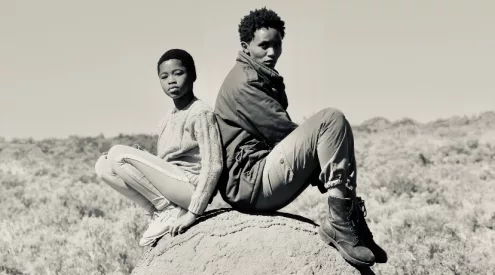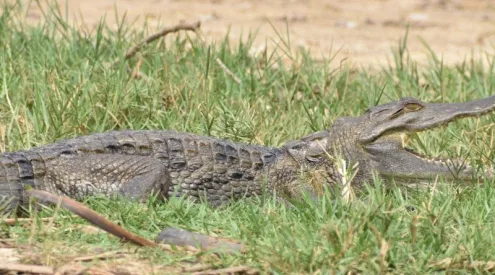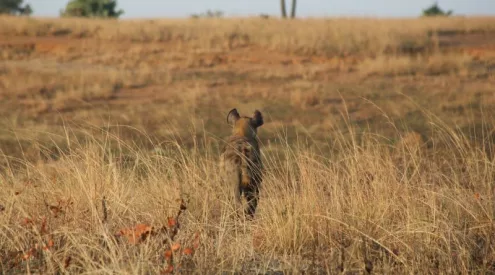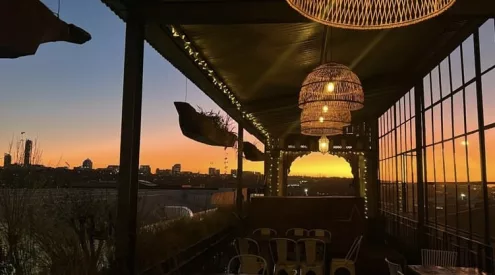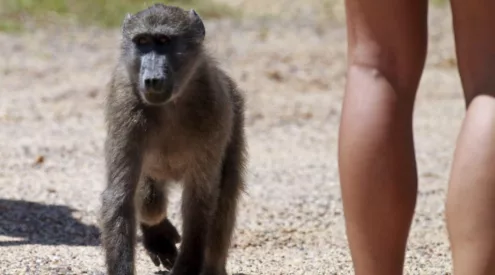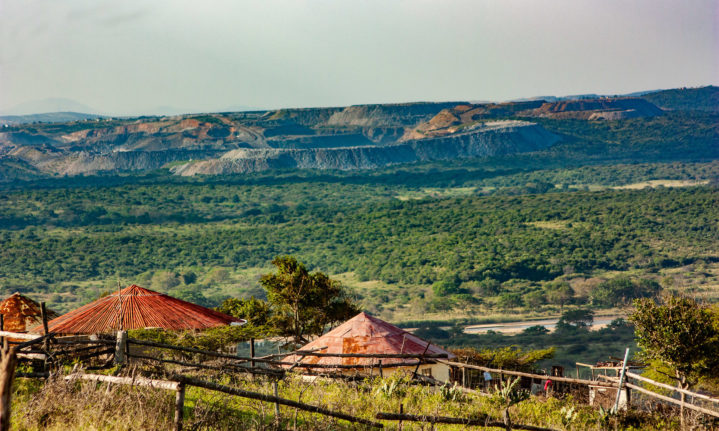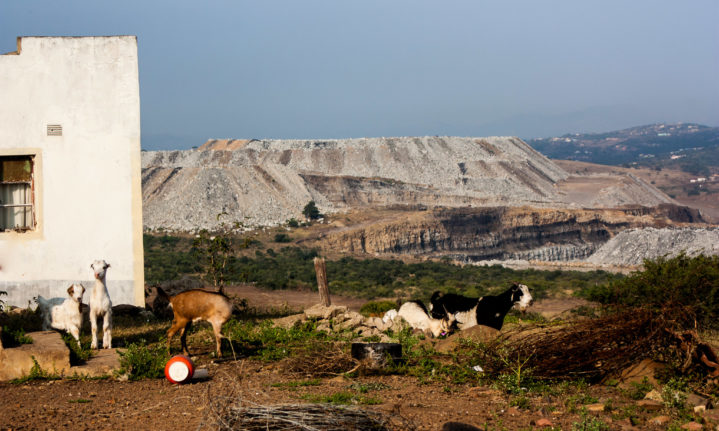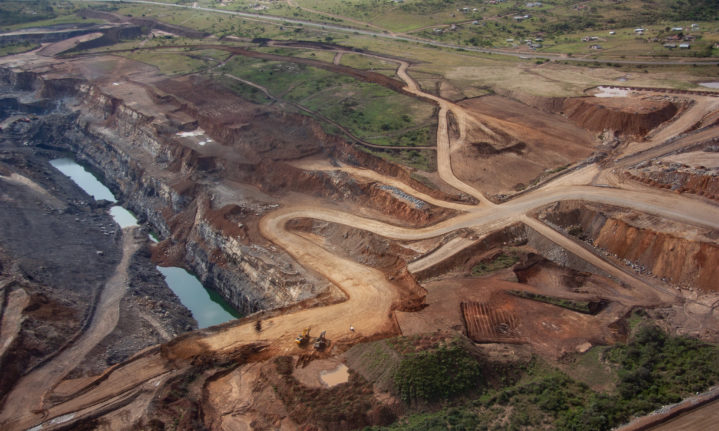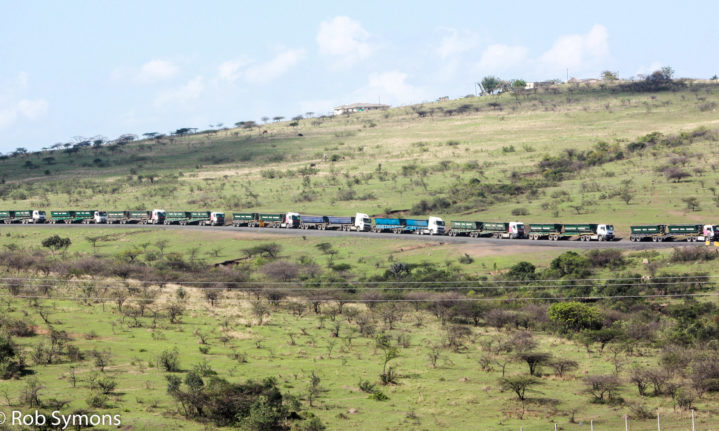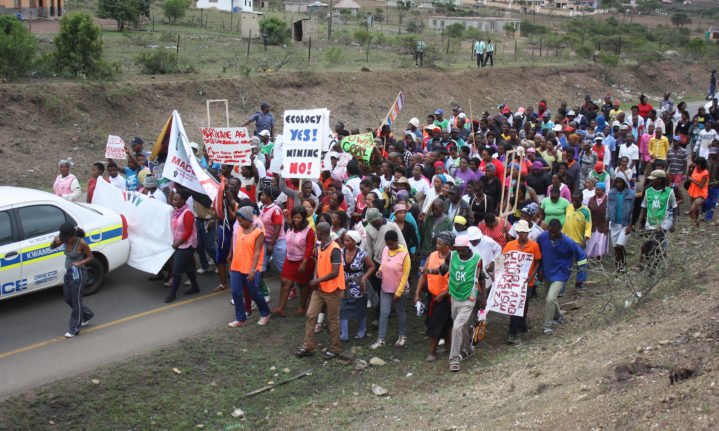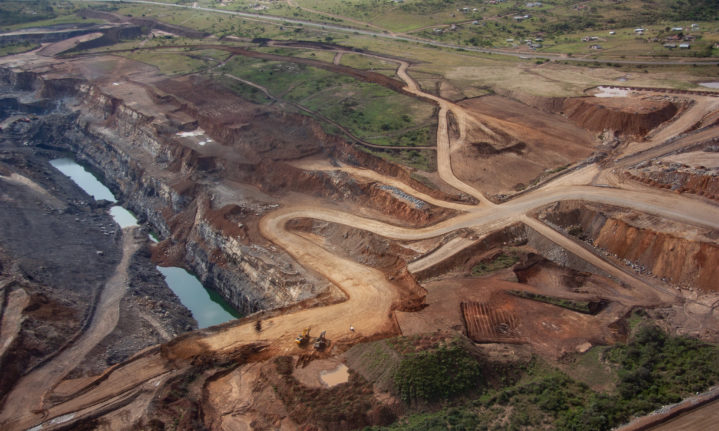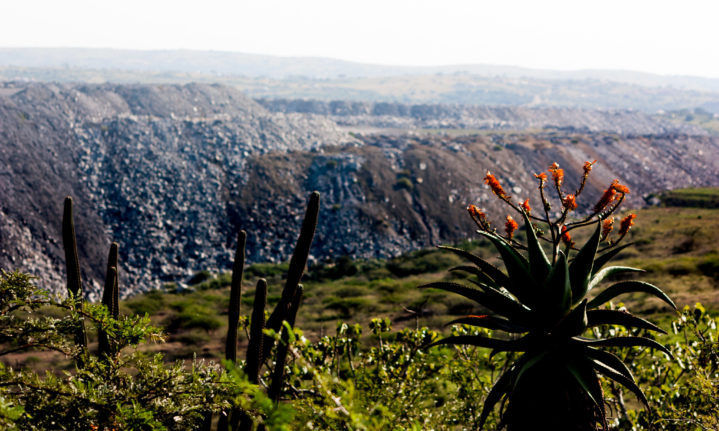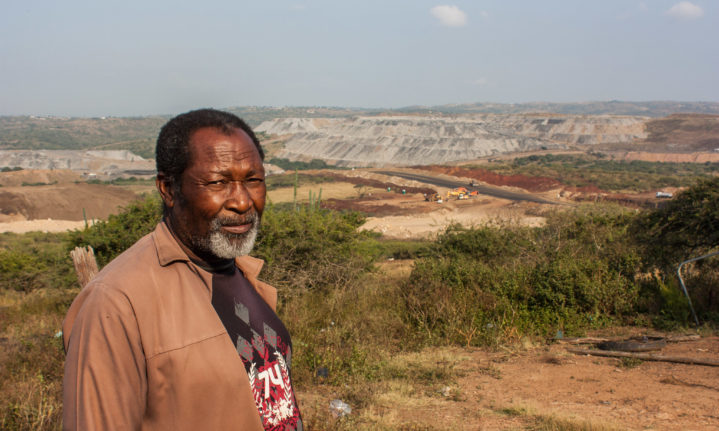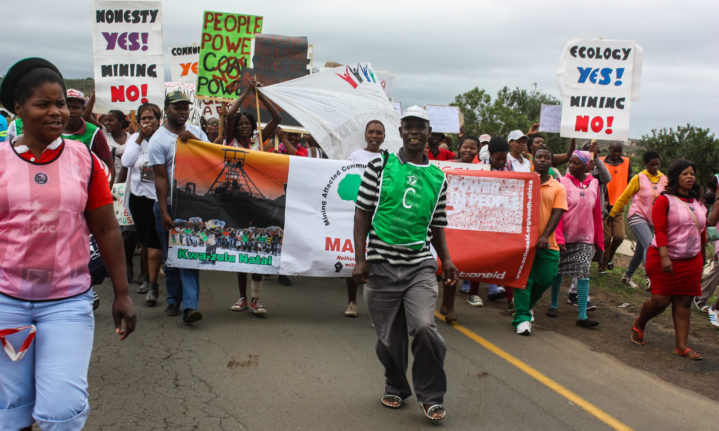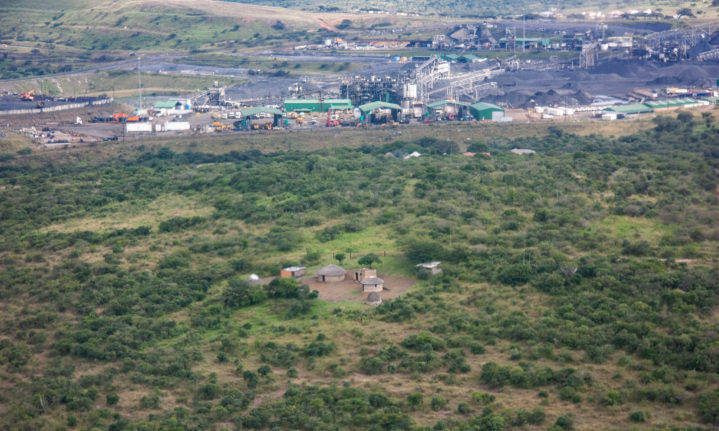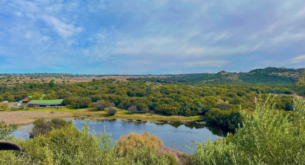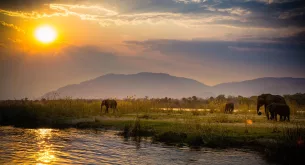In 2016, South Africa’s minister of minerals and energy granted one of the country’s largest anthracite coal mines in South Africa, Tendele Mine, the right to expand 22 000 hectare mining operations by 222km².
This will result in the displacement of 145 families and threaten the Hluhluwe – iMfolozi Park, Africa’s oldest proclaimed nature reserve. Community members surrounding the mine in iMfolozi will be taking on Tendele in Court this week, which could prove to be a landmark hearing.

An image showing the proximity of mining operations to community homesteads.
Five years ago, Tendele Coal, a mining operation out of Northern KwaZulu-Natal (KZN), was granted permission to expand its operations in north-eastern KZN by 222 km2. Residents of the area surrounding the mine’s operations in Mtubatuba challenged the decision in court in 2018, and the case is finally being heard this week.
The court challenge was initially filed by the Mfolozi Community Environmental Justice Organisation (MCEJO), a local group that formed in opposition to the mining. The dispute surrounding the Somkhele mine has been fraught with tensions and violence that culminated with the murder of environmental activist, Fikile Ntshangase, one of the leading voices against the mine’s expansion, who was shot in her own home in October 2020.
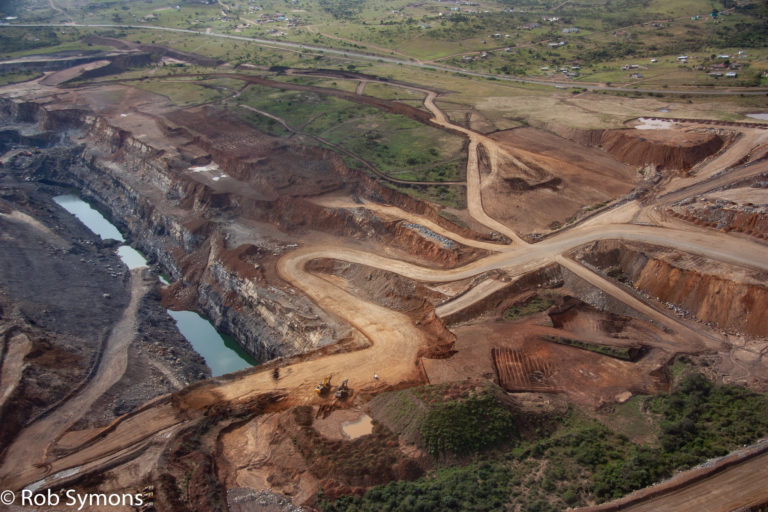
The extent of the open-pit mining in northeastern Kwazulu-Natal.
Of the 145 families that will have to be moved, 19 have not yet signed the agreement. Many of the 19 families are members of MCEJO, and are embroiled in a legal battle to halt all mining until Tendele complies with all environmental laws as well as appealing against the additional 222km² that was granted in 2016.
According to a report by New Frame Media, the tribal authority insists that the expansion will sustain jobs and skills development, but residents remain unconvinced, commenting that ‘they often use us and nice terms of ‘rural development and job creation,’ says one Ophondweni resident who asked to remain anonymous. ‘We now know that is a lie. We’ve seen it happen since Tendele mine arrived here. It has hired only a handful of people from the area. Many of them are underqualified, which means they are working generally low-paying jobs.’
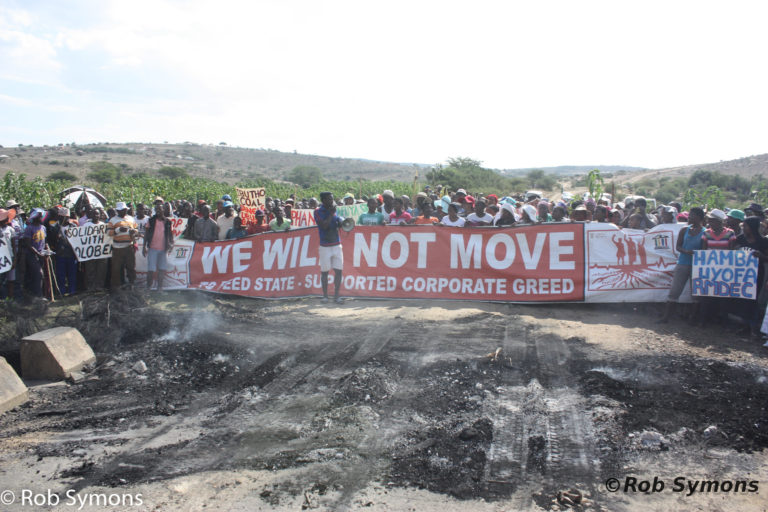
Members of MCEJO staged a demonstration in the area.
MCEJO also argues that the Environmental Impact Assessment for extending the mine was flawed and that consultation with the community was not sought. Residents in areas surrounding the mine have expressed frustration with the mining activities in close proximity to their homes, adversely affecting the quality of their lives with one resident commenting that ‘Our environment has been polluted by dust and noise and in many cases, our homes have been moved or destroyed.’
There have been complaints from the community about dust pollution affecting their health and houses cracking due to the constant blasting as well as polluted groundwater. According to Mongabay, Tendele Mine acknowledged in March 2021 that there was a ‘lack of evidence proving that the Department of Environmental Affairs had been consulted by the minister of minerals and energy before his decision to grant the mining right, as required by the Mineral and Petroleum Resources Development Act (MPRDA)’.
Tendele has since reduced the prospective mining area by 92% and is now seeking 17 km2 ‘to retain only those areas which it requires in order to keep the mine operating in the short to medium term.’ On November 5 2018, 200 members of MCEJO gathered for a demonstration outside Pietermaritzburg High Court to draw attention to their strong opposition to Tendele Coal.
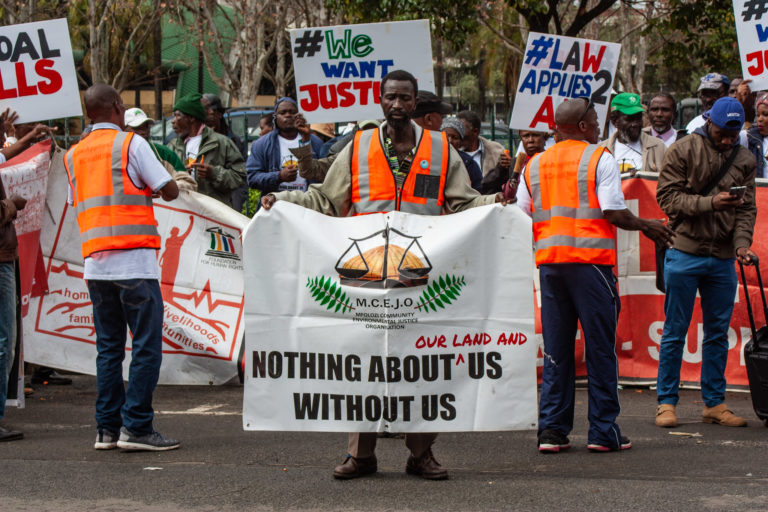
Members of MCEJO gathered outside Pietermaritzburg High Court on November 5.
There are questions regarding the environmental protocols being followed by Tendele Mine. The mining is currently taking place on the boundary to a vital ecological site, Hluhluwe – iMfolozi Park, home to one of the largest populations of the critically endangered white rhino.
The presiding judge for the case, Judge Rishi Seegobin has expressed his surprise regarding Tendele Mines lax attitude about acquiring an environmental Impact Assessment or a waste management license.
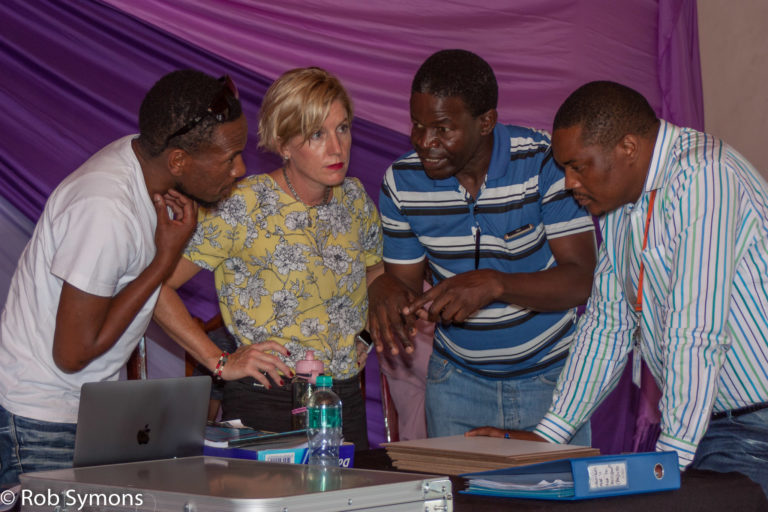
Attorney Kirsten Youens consults with members of MCEJO
This case has the potential to be a landmark for communities affected by the mining and climate change in South Africa. Kristen Youens, whose NPO law clinic, All Rise, is representing MCEJO commented that ‘this case is vital… This case will show that communities can stand up to big powerful governments and industries.’
Judgement is expected in February 2022 at the earliest. With the disappointment of COP26 to properly address the question of coal, choosing to ‘phase down’ coal, instead of phasing it out, a win for MCEJO could be transformative in setting a standard for climate justice and communities affected by mining.
Pictures: Rob Symons/ Flickr Commons
ALSO READ
South Africa secures R131 billion at COP26 for a ‘just energy transition’




